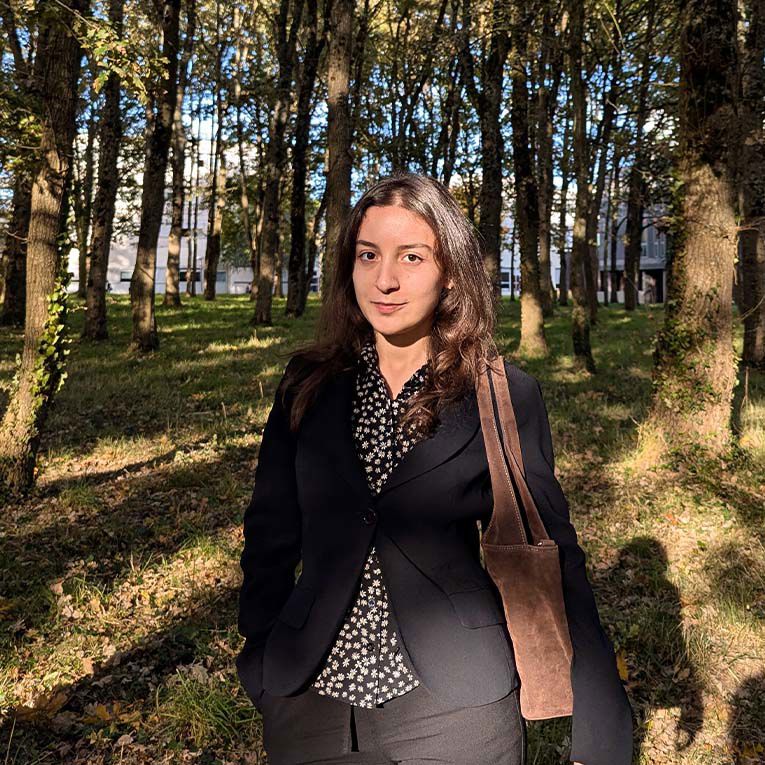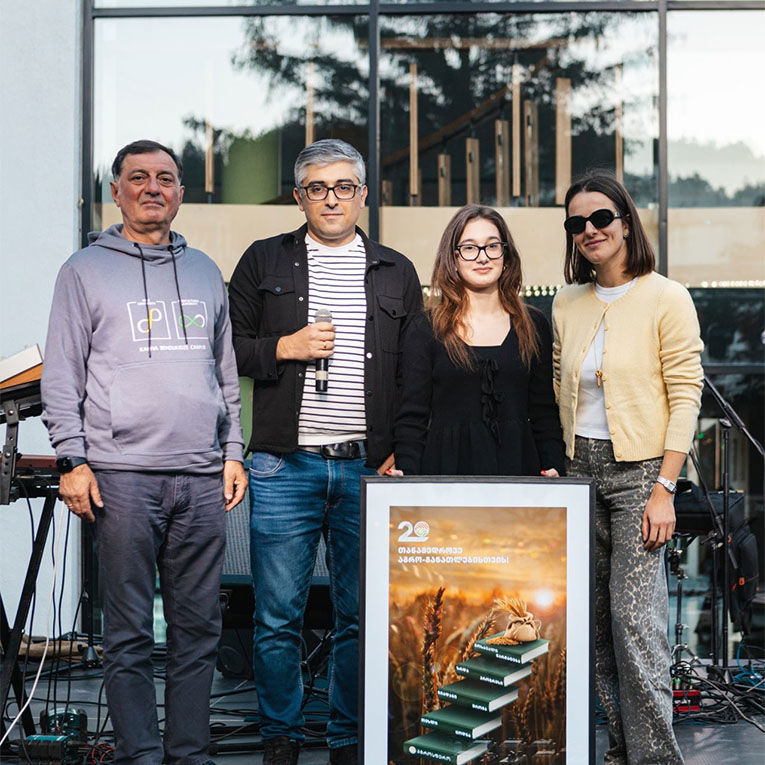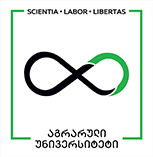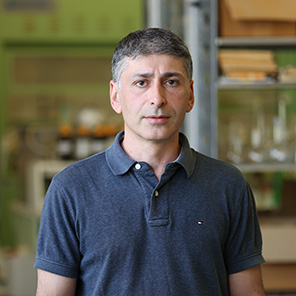School of Natural Sciences and Biotechnology
Bachelor’s Program in Food Technology Description
The objective of the Agricultural University of Georgia Bachelor's Program in Food Technology is to equip students with theoretical knowledge of the fundamental principles of food production and storage, introduce them to modern methods of food technology research and their applications, and develop practical skills in the field of food technology.
The program includes fundamental sciences essential to the field, which underpin the technological processes of food product processing. These core subjects are chemistry, physics, and biology. Building on these foundations, students also study disciplines such as food ingredients, food microbiology, food engineering, functional foods and nutraceuticals, among others.
Students in the program receive laboratory and practical training in the teaching laboratories of chemistry, biology, physics, and other relevant areas located at Kakha Bendukidze Campus.
The updated program is based on the relevant programs of the universities of Michigan (USA), Iowa (USA) and Oregon (USA).
Upon successful completion of the 4-year program, the graduate is awarded the qualification - Bachelor of Food Technology.
Action-Based Learning
A significant portion of teaching time is dedicated to laboratory studies, following a learning-by-doing approach. This implies that each student has the opportunity to individually conduct experiments/trials/analysis. Laboratory groups are limited to no more than 20 students, which in turn positively impacts learning outcomes.
Areas of Employment
After completing the Bachelor's Program in Food Technology, graduates can find employment:
- At agricultural product processing companies
- As quality managers or consultants in catering facilities
- At relevant non-governmental organizations and international projects
- On small farms
- At research organizations and laboratories
Curriculum
The curriculum for the Bachelor's Program in Food Technology consists of 240 credits, allocated across the following modules:
- University General Education - each student enrolled in the university's bachelor's programs, in addition to specialized subjects, also takes general subjects, contributing to the elevation of general education and the expansion of their field of interests.
- General Education in the Field of Study - this module includes such subjects as: Theoretical and Laboratory courses in General Biology, Theoretical and Laboratory courses in General Chemistry, General Physics, Calculus, Statistics, Ecology, Basics of Programming with Python.
- Foundational Education in the Field of Study - this module covers essential foundational courses for studying the field, such as: General Microbiology, Chemistry Laboratory Practice, Foundations of Modern Biotechnology, General Biochemistry, Organic chemistry.
- Core Education in the Field of Study - this module includes the fundamental theoretical, laboratory and practical courses required to study the field such as: Food Microbiology, Physical Chemistry, Food Engineering, Engineering Graphics, Quality Infrastructure, Food Plant Design, Food Ingredients, Functional Food and Nutraceuticals and others.
- Practical Education - this module includes the subject Internship in an Organization, within which students complete internships or work in various organizations. At the end of the semester, students prepare a brief report detailing their work experience and how they applied the knowledge and skills acquired at the university in different situations.
Elective Courses - students have the flexibility to choose additional courses based on their interests. They also have the option to pursue an additional 15 credits of courses outside the program requirements at no extra cost.
Admission conditions 2023
Code:
0050107 Copied!
Copied!
Seats Quantity 30
| National exam | Weight | Acceptable Places | Minimum Score |
|---|---|---|---|
| ქართული ენა და ლიტერატურა | 4 | ||
| უცხო ენა | 3 | ||
| Optional exam | |||
| ან მათემატიკა | 5 | 9 | 35% |
| ან ისტორია | 5 | 9 | 50% |
| ან ფიზიკა | 5 | 3 | |
| ან ქიმია | 5 | 5 | 60% |
| ან ბიოლოგია | 5 | 4 | 60% |
Subjects
ქართული ენა და ლიტერატურა
Subject Weight
4Acceptable Places
Minimum Score
უცხო ენა
Subject Weight
3Acceptable Places
Minimum Score
ან მათემატიკა
Subject Weight
5Acceptable Places
9Minimum Score
35%ან ისტორია
Subject Weight
5Acceptable Places
9Minimum Score
50%ან ფიზიკა
Subject Weight
5Acceptable Places
3Minimum Score
ან ქიმია
Subject Weight
5Acceptable Places
5Minimum Score
60%ან ბიოლოგია
Subject Weight
5Acceptable Places
4Minimum Score
60%About the School
The Agricultural University of Georgia School of Natural Sciences and Biotechnology offers 4 bachelor's programs:
- Bachelor’s Program in Chemistry
- Bachelor’s Program in Biology
- Bachelor’s Program in Food Technology
- Bachelor’s Program in Viticulture-Winemaking
Additionally, the School of Natural Sciences and Biotechnology offers the following:
- Master’s Program in Agricultural Sciences with the School of Agronomy and Landscape Management
- PhD Program in Agricultural Sciences with the School of Veterinary Medicine and the School of Agronomy and Landscape Management
The School of Natural Sciences and Biotechnology programs emphasize laboratory and hands-on learning. Laboratory and practical studies are conducted using the action-based teaching method (learning-by-doing), allowing students to learn the profession through individual work, completing tasks, tests, and analysis independently. Additionally, student groups in laboratory studies are limited to no more than 20 people, which in turn positively impacts learning outcomes.
Students at the School of Natural Sciences and Biotechnology engage in laboratory and practical studies in the fields of physics, chemistry, biology, food technology, microbiology and other subjects at teaching laboratories located at Kakha Bendukidze Campus.
Student's of the Bachelor’s Program in Viticulture-Winemaking are also provided lectures and practical training at the Agricultural University of Georgia Viticulture and Winemaking Academy and its winery, where they create their own signature wines through independent work.
In addition to the campus teaching laboratories, the students of the Bachelor's Program in Food Technology also have practical lessons at the Culinary Academy of the Agricultural University of Georgia.
Additionally, many of the school's faculty are directly and actively involved in research, including significant international projects, within the infrastructure of the Agricultural University of Georgia's scientific institutes. This involvement provides students with the opportunity to engage in scientific research from the undergraduate level, if they wish to do so. It also offers a valuable opportunity for students in master's and doctoral programs to conduct in-depth research alongside experienced researchers.

21 November 2025
თინათინ თურმანიძე გაცვლითი პროგრამით იმყოფება საფრანგეთში

20 November 2025
სოფიო ჭუმბურიძე გაცვლითი პროგრამით იმყოფება საფრანგეთში

31 October 2025
თათული ბაცაცაშვილი სწავლას აგრძელებს ორწლიან, ერთობლივ სამაგისტრო პროგრამაზე MemBioMed

28 October 2025
აგროსფეროს ერთწლიანი სასწავლო სტიპენდია
Dean

Head of the program



Coordinator







